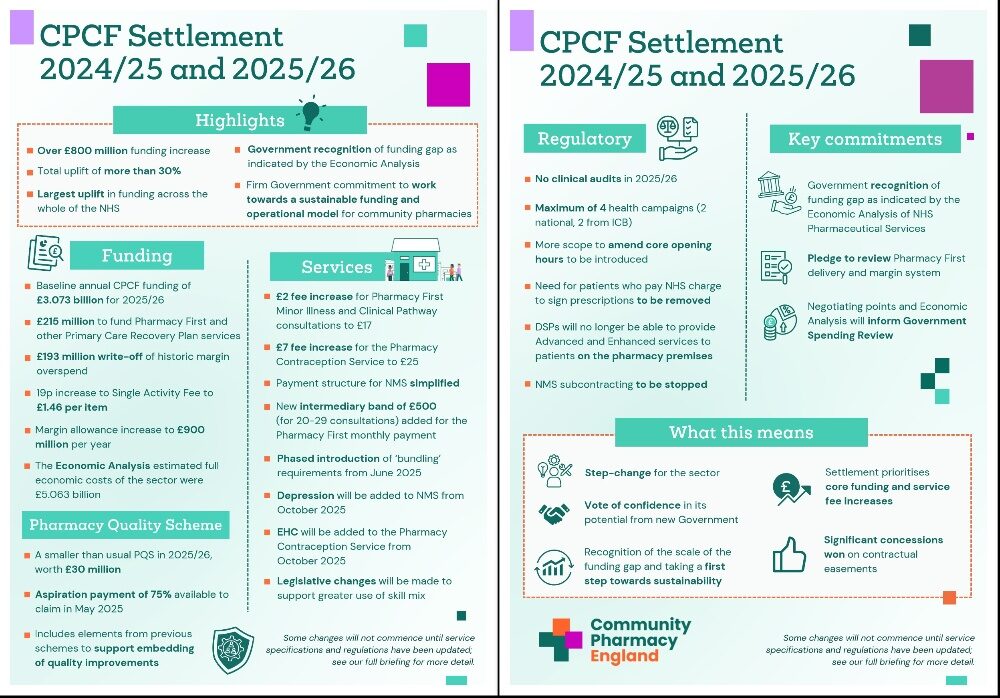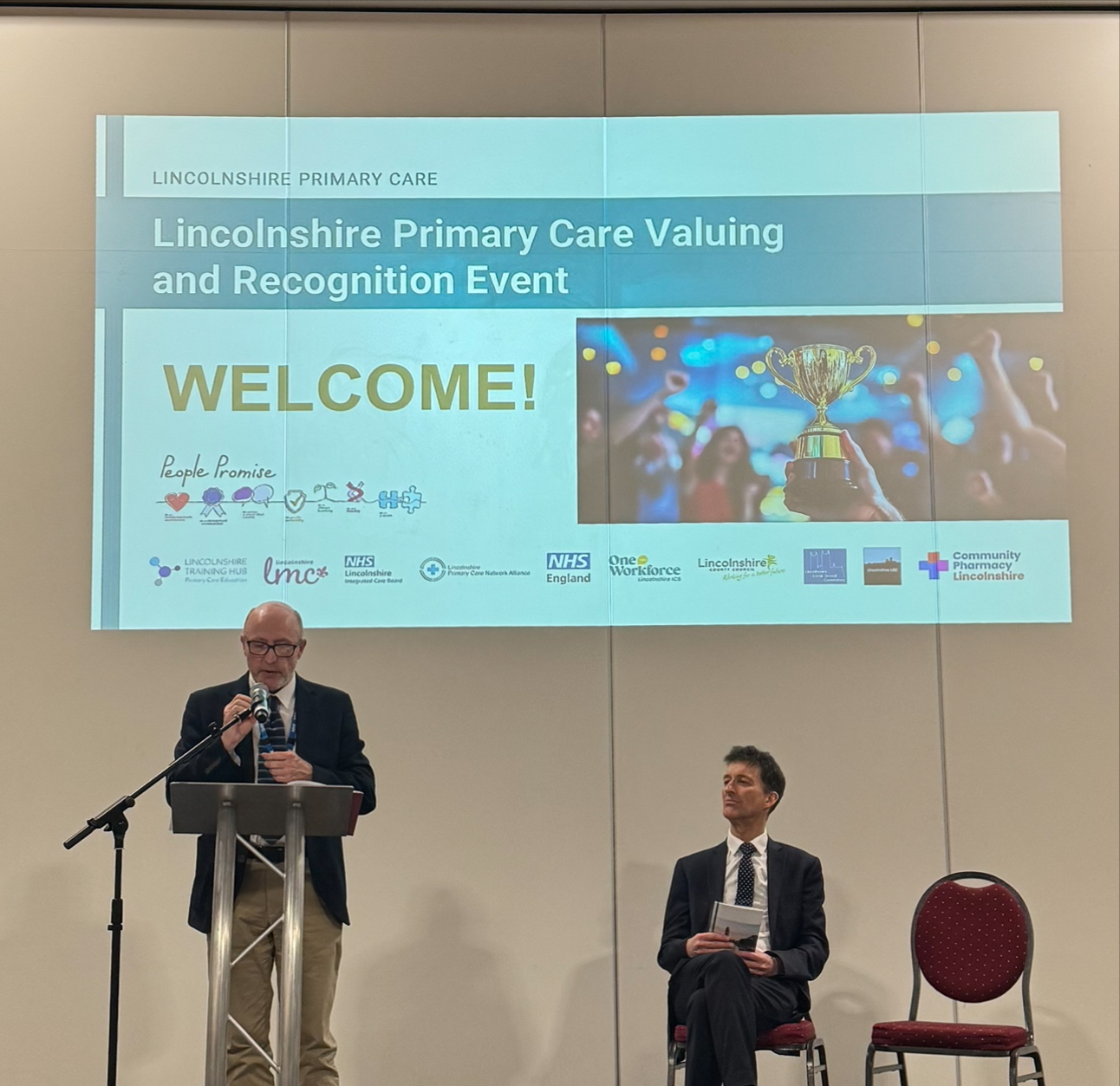1. Dispensing Medicines
Real Time Exemption Checking
Real Time Exemption Checking (RTEC) is a technical solution enabling the PMR system to automatically find out whether a patient has a known exemption that can auto-apply to their EPS prescription.
Benefits of RTEC include:
- reduce risks of contractor loss caused by pharmacy staff inadvertently submitting EPS prescriptions with a paid status when the category should have been exempt.
- reduction in the number of EPS tokens which have to be printed, completed by patients and then be sent from pharmacies to the NHSBSA;
- provide a more efficient digital process for pharmacy staff, reducing the time spent helping patients complete declarations, checking physical evidence of exemption status and sorting tokens for submission to the NHSBSA.
- reduce the risk to the NHS of prescription fraud due to a decrease in false prescription exemption claims; and
- increase convenience for patients, as there will be less need for them to provide physical proof of exemption from prescription charges.
Community Pharmacy England and NHS BSA recommends contractors register for RTEC now by reading the RTEC user agreement and confirm acceptance of it via an RTEC registration form in the NHS Business Services Authority’s (NHSBSA) Manage Your Service (MYS) application.
For more information please visit the Community Pharmacy England (CPE) website here: Real Time Exemption Checking (RTEC) – Community Pharmacy England
A pdf detailing how you can use Real Time Exemption Checking to ensure patients claiming free prescriptions are able to do so can also be accessed here: RTEC
7 and 28 day Prescriptions
Communications from the regional NHS team have highlighted growing concern over the use of prescription durations of less than 28 days (such as 7 day prescriptions and batch prescriptions) being used inappropriately to subsidise income, such as when providing monitored dosage systems.
This may have led to some confusion amongst both pharmacies and prescribers, with misunderstandings that repeat prescriptions of less than 28 days cannot be issued. This is not the case.
Community Pharmacy Lincolnshire supports the view that prescription duration should be considered in line with the clinical needs of the patient, and if agreed between the prescriber and the pharmacist, shorter durations such as 7 days may be considered. This can be important where changes may be likely or there are other clinical risks. Where shorter duration prescriptions are used, the duration should match the supply being made to the patient. This can be particularly pertinent for patients on monitored dosage systems (MDS):
- Patients issued with 7 day prescriptions should be supplied with 7 days’ medication (i.e. weekly attendance at the pharmacy or weekly delivery)
- Patients issued with 28 day prescriptions should be supplied with 28 days medication (i.e. a monthly supply). This should be the case, even if the medication is supplied in MDS
Pharmacies should not be receiving or requesting 7 day prescriptions for patients routinely provided with their medication every 28 days. Nor should pharmacies be expected to make 7 day supplies of medicines against 28 day prescriptions (in this instance, the clinical needs of the patient should be discussed with the prescriber).
Consideration should be made to the likelihood of necessary changes within the prescription period, especially for MDS (as pharmacies are under no obligation to amend MDs which has already been dispensed, and therefore new prescriptions may be required)
Some further guidance around monitored dosage systems can be found on our website here.
Further information, including details of how the Equality Act 2010 may apply, can be found on the Community Pharmacy England website.
If you have concerns or experience issues with appropriate periods of treatment, please email info@pharmacylincolnshire.org
Asylum Seeker Prescriptions
Asylum seekers in possession of a HC2 certificate are entitled to free NHS prescriptions. If an individual seeking asylum requires an urgent prescription before receiving a HC2 certificate the NHSBSA should be contacted on 0300 330 1343. If the application has been processed, then a certificate number will be available which can be used to obtain a free prescription prior to receiving the paper certificate. This must be done by the individual themselves for confidentiality.
HC2 certificates for asylum seekers normally last for 6 months (the expiry date is on the certificate) and a new application will need to be made at this point by filling in another HC1 form in advance of this date. If the asylum seeker is in receipt of section 95, the HC2 certificate will automatically be sent.
If a HC2 application has not been made or has not been received or processed, the individual should tick the ‘L’ box on the back of the prescription (HC2 full help certificate). The NHS England website directs that ‘Individual asylum seekers cannot be refused the service/medications by the provider (eg pharmacy or dental practice). The NHSBSA do however routinely undertake checks to verify that people are exempt from payment of NHS prescriptions charges to prevent and detect fraud or error. It is for the NHSBSA to decide whether or not individual cases should be investigated.’
For more information see guidance on the NHS England website or the Community Pharmacy England page Exemptions from the prescription charge.
Branded products requests in the dosage section of prescriptions

Occasionally, a GP, nurse or pharmacist may prescribe an item using the generic name on a prescription, but request that a particular brand be supplied through instructions written in the dosage section of a prescription.
The NHSBSA have stated that only the information captured on the ‘drug line’ of an electronic prescription will be read by and therefore the pharmacy will only be reimbursed (and the prescribing practice charged) for the generic or Drug Tariff price of the item as prescribed, rather than the branded or proprietary product which may be considerably more expensive.
Where this is the case, you should discuss this with the prescriber in the first instance, requesting that the prescription is amended to the appropriate brand. If the prescriber is unwilling to change, it will then be for the contractor to decide whether to supply the generic medicine as prescribed, or the brand requested.
Community Pharmacy Lincolnshire does not condone ‘hidden brand’ prescribing and are working with the CCG and LMC to reduce this issue. So that we can assess the scale of the issue, if you experience this please complete the form below (this will take no more than five minutes).
Dispensing unlicensed specials or imports
In May 2020 the Department of Health and Social Care (DHSC) made some adjustments to the Drug Tariff to incorporate new arrangements in light of the COVID-19 pandemic response.
As a result, pharmacies are no longer required to submit copies of the Certificate of Conformity (COC) or Certificate of Analysis (COA) to the NHS England & Improvement team of the prescriber after dispensing unlicensed specials or imports not listed in Part VIIIB of the Drug Tariff (the ‘Specials Tariff’).
You are still required to keep the necessary records of unlicensed specials or imports you dispense, and retain any COCs and COAs obtained for a period of five years.
Stock shortages and Serious Shortage Protocols
Shortages of medicines are becoming an increasingly frequent issue that can hinder pharmacy teams’ efforts to dispense medicines in a timely manner, havng an impact on both pharmacy teams’ workload and on patients.
We’ve produced some simple guidance to support pharmacy teams to manage stock shortages, and will update this guidance as processes change.
You can find more detailed information, including how to report medicines shortages or pricing issues (for example where stock cannot be obtained at the Drug Tarrif price) on the Community Pharmacy England Medicines Shortages webpage:
Serious Shortage Protocols
One mechanism for managing established medicines shortages are Serious Shortage Protocols. These are issued by the government and allow pharmacists to provide patients with an alternative product or quantity to their original prescribed treatment without the need to refer back to the prescriber. You can find more information on these using the link below:
Where these are in place for specified medicines, patients should not be referred back to their GP practice unless the alternatives are not acceptable to the patient. Information on the current SSPs can be found at:
- https://cpe.org.uk/dispensing-and-supply/supply-chain/ssps/
- https://www.nhsbsa.nhs.uk/pharmacies-gp-practices-and-appliance-contractors/serious-shortage-protocols-ssps
Please check these links before referring patients back to their GP for the prescribing of alternatives to ensure that an SSP is not in place.



